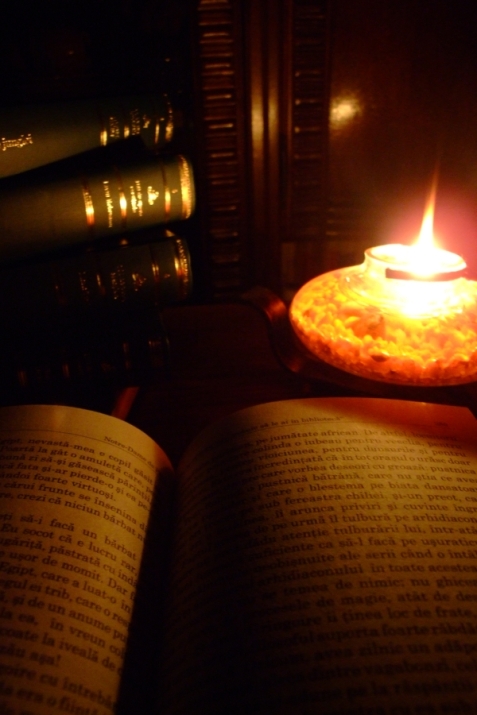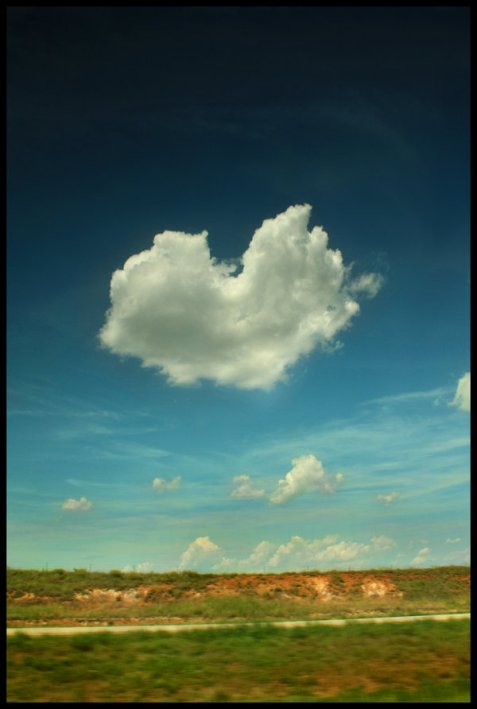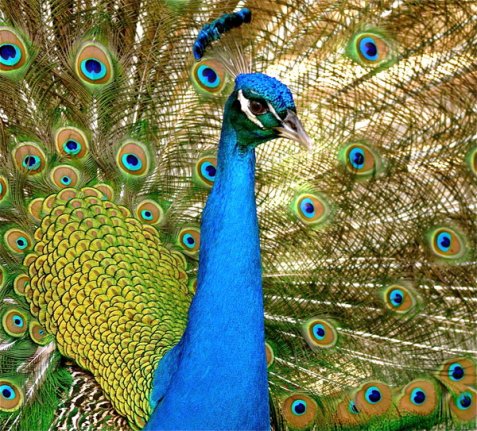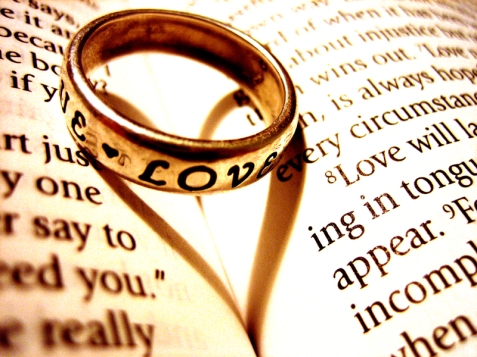 There comes a time in our lives when we want to believe that we have discovered, if not all the answers to the meaning of existence, at least a few of those answers. We may even manage to convince ourselves that we have, at long last, found “what works for us”—our personal truth. It seems inconceivable to many of us that we could have reached a certain point in our lives and still know so little. But is it not when we are willing to acknowledge our ignorance that we begin to learn?
There comes a time in our lives when we want to believe that we have discovered, if not all the answers to the meaning of existence, at least a few of those answers. We may even manage to convince ourselves that we have, at long last, found “what works for us”—our personal truth. It seems inconceivable to many of us that we could have reached a certain point in our lives and still know so little. But is it not when we are willing to acknowledge our ignorance that we begin to learn?
I was asked a few days ago how it is that I “verify” my beliefs. My answer was, “I don’t because I can’t.” What did I mean? Am I admitting that I have many beliefs that I question the validity of? In a way, yes. I have had to develop a willingness to examine each of my beliefs in order to discriminate between those which make sense to me and those which don’t. And while I have not abandoned those beliefs that I consider to be part of my core self, I nevertheless understand that I may not be able to prove the validity of those beliefs to anyone besides myself. Fortunately, it isn’t important to me whether I do or not, for I believe that each of us must find our own truth for ourselves.
It is only those who live in fear and ignorance who believe that trying to push their own views and ideas on someone else is going to achieve any effective result. Even if we think that someone whom we know is making all of the wrong choices in his/her life, it is not up to us to point that person in another direction.
Out of kindness and love, we should always attempt to prevent someone from making a decision that might bring him or her harm or endanger the life or well-being of another person. But aside from that, we should give others the freedom to choose for themselves in every area of their lives (I’m speaking of adults, of course—not children). Each person’s journey is unique and personal, and, whether we understand the individual choices someone makes or not, we must respect their right to choose for themselves.
Unfortunately, even though our world promotes the idea of individuality and personal freedom, most people are no longer thinking for themselves. The illusion is created, through various persuasive techniques on the part of the media, that we are all free to form our own opinions about everything. However, the criticism, ridicule, and outright contempt that are demonstrated towards those who dare to step away from the masses indicate that freedom is merely a concept—not a reality. We have become a nation of “feelers” rather than thinkers, basing our decisions on intuition and “gut feelings” rather than on solid evidence, facts, and proof.
Intuition does play a role in the life of a thinking person. But the fact that our feelings are so capable of being manipulated makes them much less reliable than our intellect. Socrates once said that he was the wisest man on earth because he realized he knew nothing. He believed that all of us must submit to the authority of reason. For him, the “stamp of truth” is that which remains independent of us and our own subjective realities, including our own needs, wants, and desires. Although indulging in dreams and wishes may not be a bad thing in itself, if doing so prevents us from gaining and sustaining a clear view of reality, then it can be dangerous.
Francis Bacon summed up our tendency to confuse our own reality with true reality when he said, “The assertion that the human senses are the measure of things is false; to the contrary, all perceptions, both of the sense and the mind, are relative to man, not the universe. The human understanding is like an uneven mirror receiving rays from things and merging its own nature with the nature of things, which thus distorts and corrupts it.”
Perhaps, it sounds as if Bacon was encouraging us not to use our senses at all. But a man as clear-headed as Bacon would never subscribe to such an inclusive philosophy. There is no reason to suppose that we cannot use both our intuition and our intellect. However, we must develop a level of self-awareness that enables us to ascertain when are making a choice based on instinct versus critical thinking.
To know when to use one’s abilities in a certain realm can be even more important than whether or not one possesses those abilities. There is always a time to go forward and a time to hold back, a time to feel and a time to think, a time to let go and a time to hold on. Rarely, is anything ever completely final. And yet, some things are.
Being able to accept that is crucial as a failure to do so can result in living in bondage to the past. I don’t agree with those who say that the past should never be examined for I think that analyzing the choices we have made and understanding the reasons behind those choices can be helpful. But, if we remain trapped in the past because we cannot move on, as opposed to re-visiting the past in order to learn more about ourselves, we will not be able to bring all of ourselves into the future.
Freedom is more a process of detaching than it is of attachment. The more freedom you allow yourself, the less dependent you will be on anyone else. And this lack of dependency will enable you to give others their freedom as well. Because our society is so narcissistic and has a habit of nurturing insecurities in us by promoting unrealistic ideas about romance, beauty, youth, and social status, it is only natural that we develop a tendency to look towards others to build up our self-esteem.
We all want to feel loved, cherished, and appreciated. And because society doesn’t allow us to give ourselves these feelings (how can we when everyone else’s lives seem to be so much more perfect than ours?), we seek these things from other people. The problem with this is that no matter how much praise and admiration another person gives us, if we feel inadequate or worthless deep within ourselves, we’re still going to feel that way regardless of what anyone else tells us.
And, if we are dependent on anyone else to validate us, then we have given up our freedom. Just as happiness must come from within, so also must freedom. This does not mean that you won’t ever end up in situations that in some way inhibit your freedom. What it does mean is that you will always maintain the freedom of your own mind. Even when you feel tempted to turn your back on reality in order to foster a sensation of certainty, if you choose freedom, you will resist the temptation. You will doubt rather than trust, and, even when it is easier to believe a lie than to disregard it, you will be willing to seek Truth.
If all of us were able to cast off the shackles of preconceived ideas, assumptions, and erroneous beliefs, the world would look so different to us that we would barely recognize it. Yet, we would have found both Truth and Freedom, both of which oftentimes seem to remain just beyond our grasp. When we speak of the misery of existence, we fail to give ourselves credit for creating much of the misery that exists in our own lives.
Our fear drives us to make choices that are not for our highest good. Oftentimes, rather than accepting responsibility for those choices, we either blame others or allow ourselves to become overwhelmed by guilt. Why? Because it seems to be the easier path to take. And in a society that promotes the easy over the difficult, we are conditioned to make the decision that appears to require the least from us.
It is much harder to admit that we’ve made a grave error than it is to attribute one of our mistakes to someone else or to an outside cause. But what does reason dictate? Does evading the truth alter the truth in any way? No. Truth remains the same, whether we acknowledge it or not. Moreover, it may be more difficult to find the truth if we avoid it persistently and for an extended period of time. Yet, not acknowledging something that exists will never negate its existence.
Similarly, pretending that something is real when it isn’t will not make it so. The True is the Real. We can close our eyes and pretend that we’re living in a fairy tale. But at some point we’ll have to open them again and face the reality of our everyday lives. And when we face this reality is when our authentic lives begin.
The only part of you that will ever encourage you to live outside of truth is your False Self. Your True Self, that self who is capable of creating a life of meaning and purpose, fully understands that fulfillment can only come from within Truth. Only Truth is eternal. And, in the end, nothing else will remain. When each of us comes to the end of our lives, the lies we have told ourselves and others will no longer matter. We will be faced with the results of a life that was either lived in freedom and in truth or in falsehood and imprisonment.
Does it sound like this is yet another matter in which making a choice is the preeminent factor? Well, in a way, life does consist of the choices we make. We may think we’re being clever when we make choices that bring us pleasure at the expense of bringing pain to others. But the person who will pay the price of all the choices we make is us. And there is always a price to pay, whether we see it immediately or not. If nothing else, we pay the price of selling our soul and freedom to lies and self-deception. We pay the price of betraying humanity by choosing what we thought was best for us over what was right for others.
It is so easy to forget that we are all as connected as we are separate. And yet, the moment we forget that is when we cease to be fully human. It is also the moment when we think we have more answers than we do. There are many who imagine themselves to be smart enough to live successfully by their own rules. But those who make an impact on the world and who lead lives that are of consummate value will never be the many but rather the few. They may not acquire fame or fortune, yet they will have gained something of far greater merit—the freedom of Truth.
The Stoic philosopher Epictetus once said, “He who knows not who he is, and for what purpose he exists, and what is this world, and with whom he is associated, and what things are the good and the bad, and the beautiful and the ugly, and who neither understands discourse nor demonstration, nor what is true nor what is false, and who is not able to distinguish them, will neither desire according to nature, nor turn away, nor move upward, nor intend, nor assent, nor dissent, nor suspend his judgment: to say all in a few words, he will go about dumb and blind, thinking that he is somebody but being nobody.”
What will your choice be? Is it better to be a nobody who thinks he is a somebody or a somebody who is humble enough to regard himself as a nobody? There is no reason to underestimate ourselves. Nevertheless, it will always be in humility that we find Truth, for Pride is a veil through which knowledge and wisdom cannot penetrate.
Love and blessings,
Alexis, your SuccessDiva
(for Mark Stephen Levy, with love, happiness, and much respect)
Join my free e-mail newsletter. No Yahoo account is necessary.
http://groups.yahoo.com/group/successdiva/
Follow me at Twitter: success_diva7
This page and all written material at the SuccessDiva Pages is written by Alexis Wingate. (C) Copyright 2010 Alexis Wingate, the SuccessDiva. All Rights Reserved












 ~ON BEING EXTRAORDINARY IN AN EVERYDAY WORLD~
~ON BEING EXTRAORDINARY IN AN EVERYDAY WORLD~












